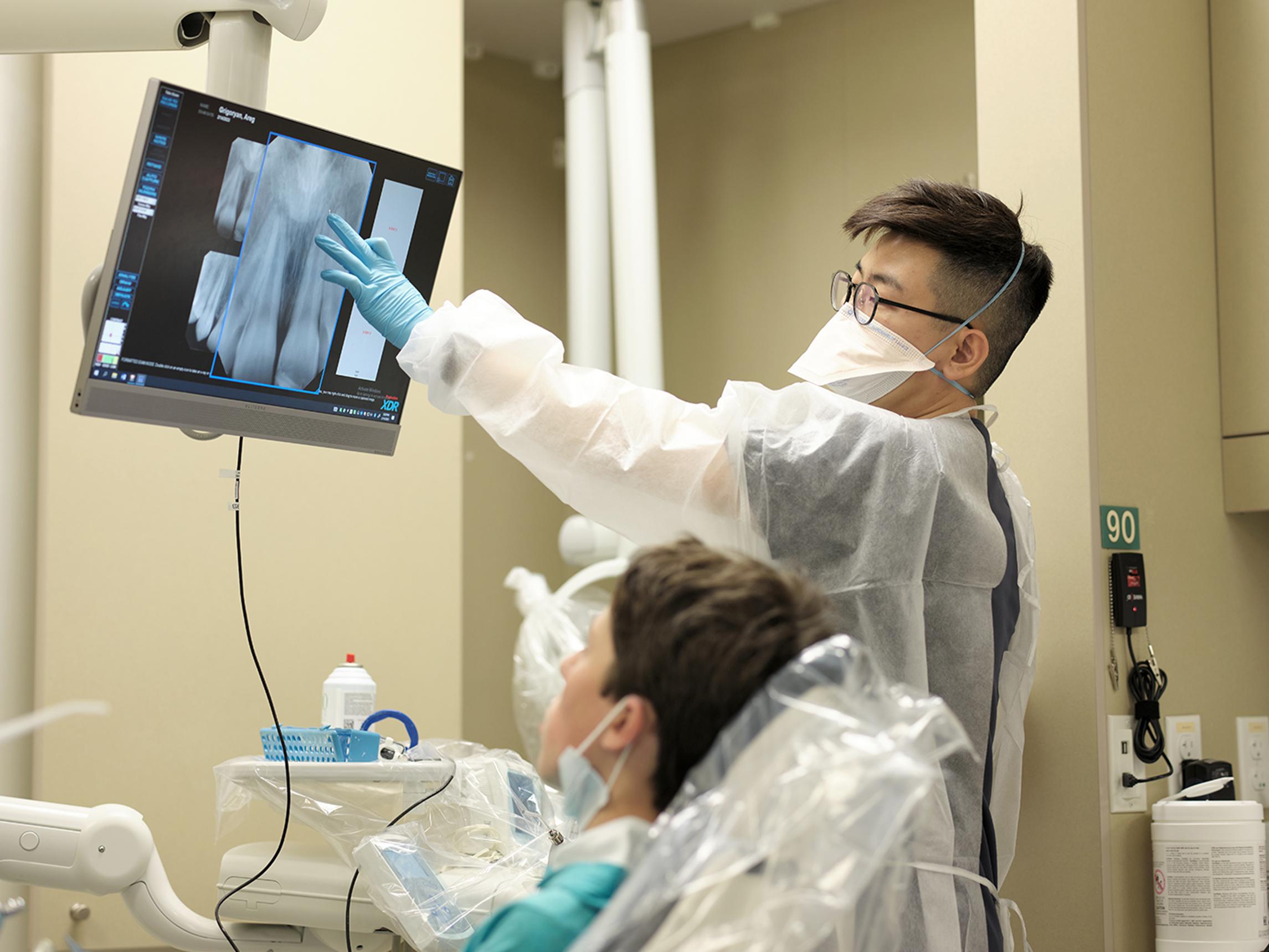Find Out About Regular Oral Worries Your Dentist Can Solve
Comprehending regular dental concerns is crucial for preserving optimum dental health. Issues such as dental caries, gum condition, tooth level of sensitivity, foul breath, and dental caries are common yet usually ignored until they end up being severe. Dental professionals have the knowledge to diagnose and deal with these conditions, therefore preventing more difficulties. Regular dental check outs and individualized care plans can resolve these problems efficiently, guaranteeing a much healthier and brighter smile. What specific treatments do dentists use to deal with these issues, and exactly how can early intervention make a difference? The answers to these concerns offer useful understandings right into safeguarding your oral wellness.
Dental Caries
Tooth cavities, additionally recognized as cavities, are a widespread oral wellness problem caused by the demineralization of tooth enamel as a result of acid manufacturing from bacterial plaque. This procedure begins when microorganisms in the mouth metabolize sugars and starches from food, generating acids that wear down the enamel. Otherwise dealt with without delay, this disintegration can permeate deeper right into the tooth, affecting the dentin and at some point the pulp, possibly causing severe discomfort and infection.
The onset of cavity development typically existing as white areas on the tooth surface area, suggesting preliminary demineralization. As the process progresses, these spots can become brownish or black lesions, signifying more considerable decay. Regular oral examinations are critical for very early detection, as cavities in their nascent phases can be treated with remineralization methods, such as fluoride therapies.
Dentists generally remove the corroded portion of the tooth and fill the cavity with products such as composite resin, amalgam, or ceramic. Precautionary steps, including good dental health practices and dietary alterations, play a pivotal duty in mitigating the threat of dental caries.
Gum Condition
While cavities stand for a substantial issue for dental health, another vital problem that demands interest is gum illness. Likewise referred to as gum illness, periodontal disease is an inflammatory problem impacting the tissues bordering and sustaining the teeth. It is primarily brought on by the accumulation of plaque-- a sticky film of bacteria that bases on teeth.
Gum disease advances with phases, beginning with gingivitis, identified by inflammation, swelling, and hemorrhaging gums (dentist eugene or). If left unattended, gingivitis can escalate to periodontitis, where the internal layer of the periodontal and bone pull away from the teeth, forming pockets that end up being contaminated. Gradually, the toxic substances created by the germs break down the bone and connective cells that hold teeth in position, potentially leading to tooth loss
Early detection and therapy are important. Expert oral cleanings and boosted dental health methods, such as brushing two times everyday and flossing, can manage gingivitis. For advanced phases, therapies might include scaling and origin planing, antibiotics, or also surgical treatments.
Regular oral examinations play a crucial duty in avoiding and managing gum condition. Dental practitioners can determine early indications and advise suitable interventions, making certain the maintenance of healthy gums and general oral wellness.
Tooth Sensitivity
Tooth sensitivity impacts millions of people worldwide, presenting an usual yet usually stressful dental issue. This problem arises when the enamel, the outermost protective layer of the teeth, is endangered, exposing the underlying dentin. The dentin contains microscopic tubules that lead straight to the oral pulp, where nerves reside. When exposed to stimulations such as hot, cold, pleasant, or acidic compounds, these nerves are set off, creating sharp discomfort or discomfort.
A number of variables add to enamel erosion and subsequent tooth level of sensitivity, including hostile cleaning, acidic foods and drinks, gum economic downturn, and bruxism (teeth grinding) In addition, oral procedures such as teeth bleaching can briefly enhance level of sensitivity.
Foul-smelling Breath
Another common oral worry that influences people' everyday lives is bad try this website breath, clinically described bad breath. Bad breath commonly originates from poor oral hygiene, which allows food particles to stay in the mouth, fostering microbial development.

Dentists play an essential duty in identifying and treating halitosis. They can recognize the source with a detailed evaluation and supply customized guidance and therapy strategies. Recommendations may include improving dental health techniques, such as regular brushing and flossing, making use of antibacterial mouthwashes, staying moisturized, and resolving any kind of dental issues. Sometimes, a referral to a specialist might be essential to tackle underlying health and wellness issues adding to negative breath. Effective administration of halitosis not only improves oral health and wellness however likewise dramatically boosts lifestyle.
Tooth Decay

Avoiding dental cavity entails a mix of excellent dental hygiene methods and routine oral exams. Cleaning teeth at the very least twice daily with fluoride toothpaste, flossing to remove plaque between teeth, and limiting the intake of sweet foods and drinks are necessary safety nets. Fluoride treatments, oral sealers, and professional cleanings provided by a dental practitioner can additionally play a substantial role in fortifying enamel and preventing decay.
When dental caries occurs, very early treatment is key. Dentists can remove corroded cells and recover the tooth with dental fillings made from products such as composite resin, amalgam, or porcelain. In more advanced cases, therapies like crowns, origin canals, or removals might be required. By dealing with dental cavity promptly, dentists help maintain oral structure and function, making certain long-lasting dental wellness.
Final Thought
Dealing with typical dental concerns such as dental caries, gum condition, tooth sensitivity, foul-smelling breath, and dental cavity is critical for preserving optimum oral wellness and overall well-being. Dental practitioners possess the proficiency to detect and treat these problems successfully, making certain tailored take care of each patient. Routine preventive procedures and dental exams are necessary in identifying and handling these problems early, advertising a healthier and a lot more certain smile over a lifetime.

Tooth decay, likewise understood as oral decays, occurs when the enamel, the outer layer of the tooth, is eroded by you can find out more acids created by germs in the mouth. Cleaning teeth at least twice daily with fluoride tooth paste, flossing to eliminate plaque in between teeth, and restricting the intake of sweet foods and drinks are necessary preventative steps.Addressing usual oral problems such as tooth cavities, gum tissue condition, tooth level of sensitivity, bad breath, and tooth degeneration is vital for preserving optimal dental health and wellness and overall health.